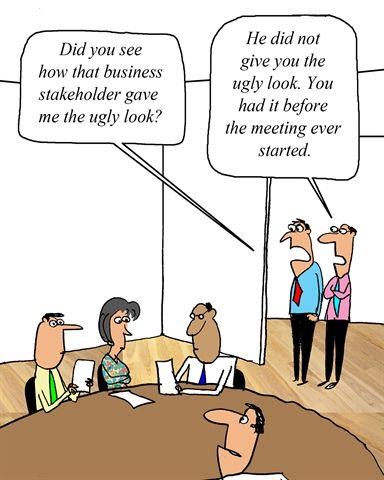
They use this insight to improve the overall website design and user experience. Web analysts typically have a background in web design, with strong analytical and problem-solving skills. The main responsibility of a business analyst is to find those areas for a business where it needs more efficiency as well as those that can be improved to bring better revenues. This job is an extensive research role where business analysts across the hierarchy work together to share their reports and find better avenues for a business to improve from. Business analysts work with management to reduce costs, eliminate, or reduce inefficiencies, and boost the company’s competitiveness in the modern business world.
If senior management isn’t brought into the analysis process, you will have less support. If you’re trying to take on more significant projects (and improve your skills in the process), you will need to convince senior management that it’s a good idea. Keep communication channels open, either directly or via mid-level management, with what’s going on. Generic business analysts aren’t equipped to handle the diverse challenges of specialized projects. The best business analysts don’t settle for knowing only broad, generalist skills.

Data is integrated into all corners of the global marketplace, driving economic growth and helping businesses compete. Sales strategies that incorporate a data-driven approach can see increases of 15% to 25% of earnings before interest, taxes, depreciation, and amortization (EBITDA), according to McKinsey & Company. Every advantage counts, and a good business analyst could mean the difference between excellence and mediocrity. Finally, once they have got it all together, then they can analyze the data.
Operations Research Analyst
Data analysts typically have a background in mathematics, statistics, or computer science, with strong analytical and critical thinking skills. Educational requirements for the role vary, but employers typically prefer candidates who have a master’s degree with a focus in computer science, computer engineering, or data science. A data analyst is expected to have strong quantitative and mathematics skills and the technical skills to use various tools for data analytics, predictive analytics, and data visualization. We find business analysts in all kinds of industries, including businesses of all types, government agencies, and nonprofits. While any industry can benefit from business analyst expertise, management consulting firms and IT-related firms make up the largest share.
How Immigration Is Roiling Governments Across Europe Best … – U.S. News & World Report
How Immigration Is Roiling Governments Across Europe Best ….
Posted: Tue, 08 Aug 2023 17:17:00 GMT [source]
An economic analyst works with large data sets to create economic forecasting models for private organizations or the government. They research the current economy, along with past trends, to determine what the economy will look like in the short and long-term future. Companies hire economic analysts to help them better predict future events so they can make financial decisions. Practically every industry has analyst roles — collecting and analyzing data and leveraging business, communication, and problem-solving skills to make informed decisions.
Data analytics tools
First of all, it is crucial to realize that the role of a Business Analyst is not a uniform or standardized one. Besides, as is, often, the case, it may become necessary for you to hire several Business Analysts with varying skills sets that complement one another. Medical and health care analysts are responsible for analysing medical data to help doctors and other healthcare professionals make informed decisions about patient care.
Medical Properties Trust (MPW) Q2 2023 Earnings Call Transcript – The Motley Fool
Medical Properties Trust (MPW) Q2 2023 Earnings Call Transcript.
Posted: Tue, 08 Aug 2023 21:30:25 GMT [source]
It would depend on your company ethics and its working hours to figure out if your job will be stressful or not. Business analyst isn’t a difficult job to pursue but can be slightly more difficult than usual business opportunities. This is because it needs extensive patience in terms of research and analysis.
Analyst Jobs
Use of the ACS Professional Staffing Referral Bonus Program must be done on your own time and not as a part of your regular work duties. This program is strictly voluntary, and there is no obligation to participate or refer any candidate to the referral program. Information is obtained by reading the company’s filings with the Securities and Exchange Commission (SEC), meeting with its management, and if possible, talking types of analyst with its suppliers and customers. For example, to get free research from Merrill Lynch, you need to have an account with a Merrill Lynch online or via a personal broker. Institutional clients (i.e. mutual fund managers) get research from the brokerage’s institutional brokers. Outsourced end-to-end product development is by no means something that can be handled by every other software outsourcing provider.

It pays a higher salary than other business roles as well as perks and work-life balance. With more entrepreneurial ventures coming up these days, every business needs a business analyst who can streamline operational, internal and revenue processes. Business intelligence analysts study the company’s data, including customer and employee information and financial records. They use this information to identify trends and make recommendations for improving business operations.
What Are the Analyst Roles Projected to Thrive This Year?
For example, major Wall Street firms will disclose they provided investment banking services to the subject company. Buy-side analysts are employed by fund managers like Fidelity and Janus, as well as insurance companies, pension funds, or hedge funds. Like the sell-side analyst, the buy-side analyst specializes in a few sectors and analyzes stocks to make buy/sell recommendations.
After conducting their analysis, business analysts present their conclusions to managers to help them implement suggested changes. A data analyst is someone who manipulates and studies data and communicates findings with their organization to find opportunities and improvements. They hold the keys to data-driven business decisions, making it an extremely in-demand role. The purpose of data analysis is typically to provide a data-driven foundation for decision-making. Data analysts look for patterns or trends and use these to make projections. They may also provide easy-to-read reports that simplify data for companies.
Later, you can specialize in the domain or industry you are most interested in, and that experience may help you identify what that industry is. A business analyst should be able to define user requirements based on your organization’s needs. These requirements will help you create an effective product or service that meets those needs, which is critical for success in today’s marketplace. Business systems analysts analyze a company’s operating system, processes, and design enhancements using business and technological techniques. Through planning and implementation of information technology systems, they seek to assist a business in operating more effectively and efficiently.
- They produce analysis reports and are expected to answer any questions regarding the data.
- They work to analyse large amounts of data and turn it into actionable insights for their companies.
- They must be well-versed in the client’s business domain and well-aware of the current market trends within this business domain.
- The software has an intuitive interface that lets you focus on what matters most—your data while providing powerful features like advanced filtering and drill-down capabilities.
- A business process analyst can often organize a lot of data inside a process framework.
HR analysts typically have a background in human resources, with strong analytical, communication, and problem-solving skills. A business analyst is responsible for analyzing an organization’s business processes and identifying areas for improvement. They may also be involved in implementing new systems or software to streamline these processes. Business analysts typically have a background in business or management, with strong analytical and problem-solving skills. A research analyst researches and analyses data related to the market, finance, accounting, customers, etc., and presents it to their organization. In addition to having excellent financial acumen, a research analyst must also possess strong analytical skills.
They might also be asked to participate in the documentation of processes and discuss new process designs with stakeholders. They plan, organize, define, identify and interpret opportunities for improvement in many areas. They analyze information in business, data, research, and finance to integrate a better model or process to facilitate greater returns and smoother operations. The median annual salary for data analysts was $63,000 as of March 2022, according to PayScale, with the highest 10% making more than $87,000.

You need to be familiar with machine learning and statistics to be effective in this position. Summing it up, data is the currency the commercial sector uses to buy success. Business analysts work with data and the in-house departments, making intelligent, informed, data-driven decisions that will boost profits and strengthen the company. Any business that wants to succeed today should either hire a third-party business analyst as a consultant or recruit one for an in-house position. If you are thinking about a career change, consider training for a job as an analyst.
They recognise and comprehend the client’s project-specific requirements and clearly and formally record them. In India, a requirement engineer gets an average pay of INR 9 lakhs per annum. Salary projections are based on 70 incomes from different requirement engineers working in different businesses. Process mapping and business process reengineering are key skills that business process analysts must possess. They examine corporate procedures and workflows to see how they may be enhanced or automated. They facilitate process workshops and then use process maps and business requirement documents to capture any information obtained.
